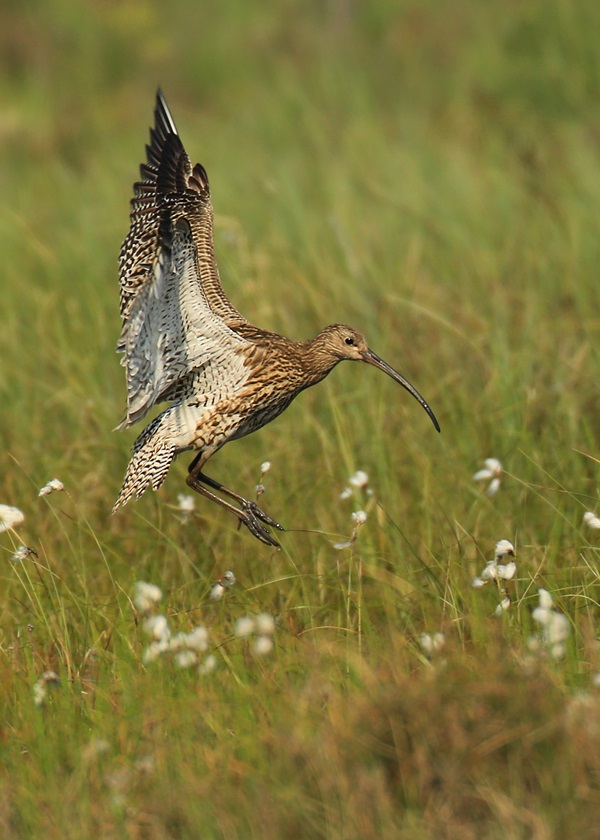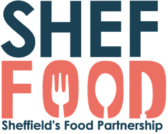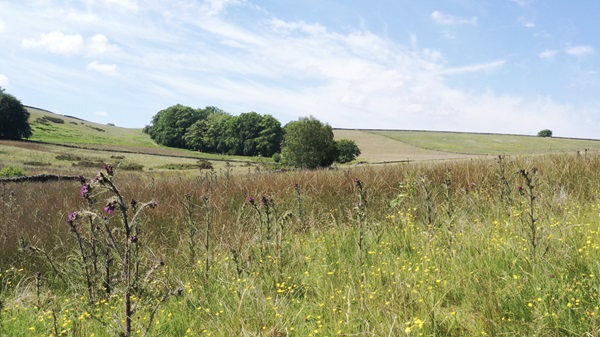After the success of Sheffield’s Sustainable Food Places Silver Award in 2023, Sheffield’s Food Partnership, ShefFood, is continuing to grow, welcoming new organisations to the cause of a fairer, healthier and greener food system for Sheffield. One of the latest partners to join the fight is Sheffield & Rotherham Wildlife Trust, whose recent purchase of Ughill Farm in Sheffield is the start of a fantastic project supporting people, animals, plants and the planet. Here’s more about this unique opportunity from those at the Trust.
Sheffield & Rotherham Wildlife Trust is a registered local charity working with our members, volunteers, local people, partners and the wider Wildlife Trust family, to safeguard and enhance the environment, creating a better future for wildlife, people and the green spaces that we all depend on. Our advocacy efforts are focused on protecting wildlife and green spaces, including standing up for threatened areas and empowering others to take action for nature. Our goal is to ensure that 30% of land and water are excellent for nature by 2030, and that everyone has access to green space within a five-minute walk from their homes.
The Trust has been working in the Sheffield Lakeland area for many years and has developed positive relationships with many of the farmers there. The opportunity to purchase a farm in the area was too good to miss, and could not have come at a better time.
Ughill Farm is low grade, marginal farmland on the western edge of Sheffield. It is an important site for curlews, golden plover and other nationally threatened wading birds that come to our moors each spring in order to breed. The farm also includes a small area of the internationally important Eastern Moors Site of Special Scientific Interest and lies within the Peak District National Park. When the 132 hectare site came up for sale, we knew we had to do all we could to save the land – and the curlew – from more intensive agriculture as has happened elsewhere in the area.
Owning the farm allows us to explore the new government Environmental Land Management Scheme (ELMS), along with other initiatives, to trial them and share our findings, and strengthen our partnership with other landowners and farmers. We want to farm the land sympathetically with nature, demonstrating that sustainable farming, enhancing our wildlife and natural resources is not just achievable, but also makes sound commercial sense.
Ughill is a true upland farm where the main agricultural product is grass, heath and moorland edge. Upland pasture and modified grasses make up the majority of the farm at present. Through sympathetic agricultural practices we aim to restore the heath and moorland mosaics, bring the acid grassland pastures into good ecological condition and revert the modified grasslands to permanent pasture and hay meadow.
As with moving into a new house, the advice is not to make major changes in your garden until you’ve lived with it for a while, found out what it offers year-round, what you want to keep and what needs to be changed to suit your needs. While doing this at Ughill we have already discovered it is far more diverse than we originally thought and hosts many more species and habitats. We have some old grasslands of a historical species mix which are considered scarce in the area (we’ll be keeping and developing these), but also highly modified; drained and planted, agricultural fields which may produce lots of grass but offer very little (we’ll be changing those). Working with partners for advice and support we plan to create new areas of woodland, re-wet some of the heavily drained pastures and create open water habitats.
Our amazing volunteer community is supporting us with essential work at Ughill, including ecological monitoring, habitat management and dry-stone walling. The Trust is also working with the local universities so that Ughill is a place where students can gain direct, hands-on experience of ecology, wildlife and land management – and maybe even learn some traditional skills from our volunteers!

Ughill Farm sits right in the centre of the Sheffield Lakeland Area, an area of focus for conservation and ecosystem services for our partnership. Our aim is to design an upland farm for the future, including climate resilience. Holding water on-site re-wetting the land and planting trees, will help ‘slow the flow’ during the wettest winters and will be part of the River Don’s natural flood management plans. That re-wetting will help maintain moisture during droughts in the summer and the trees will offer shade to grazing animals and wildlife during the hottest of future days. This combination of climate resilient sustainability and helping protect downstream communities are what we aim to achieve and share.
Owning, managing and using this land for nature friendly farming, will make a significant contribution to our ambition of ensuring 30% of land and water is good for nature (including us humans!) by 2030.
If you are interested in joining our wonderful volunteers at Ughill and elsewhere, visit wildsheffield.com/volunteering to find out more. You can find out more about our work on the farm and how you can help at wildsheffield.com/ughill.
Authors: Keith Tomkins (Sheffield Lakeland Landscape Manager) & Fury Mets-Mallin (Marketing & Communications Officer), Sheffield & Rotherham Wildlife Trust.
Feature image photo credit: Ughill Farm (credit James Hargreaves)

